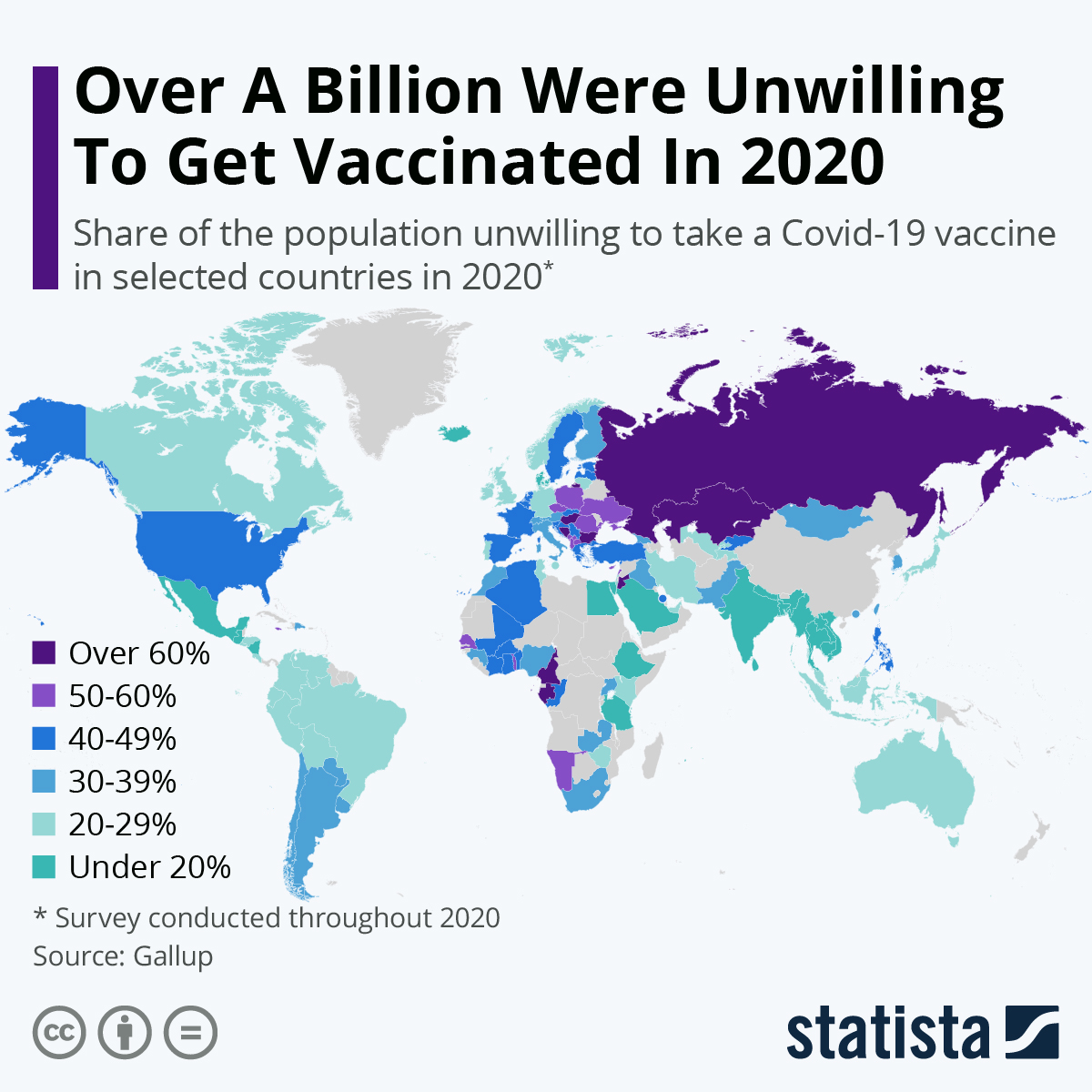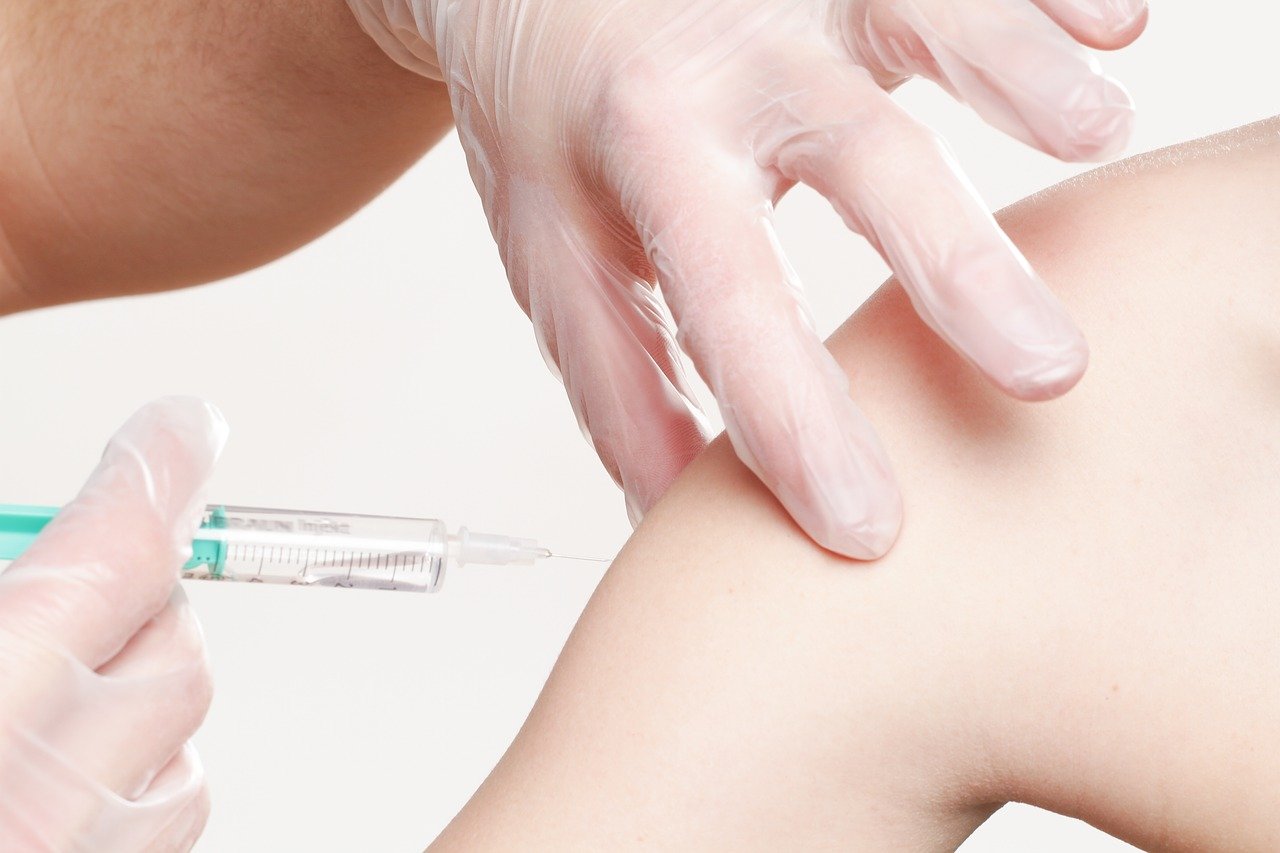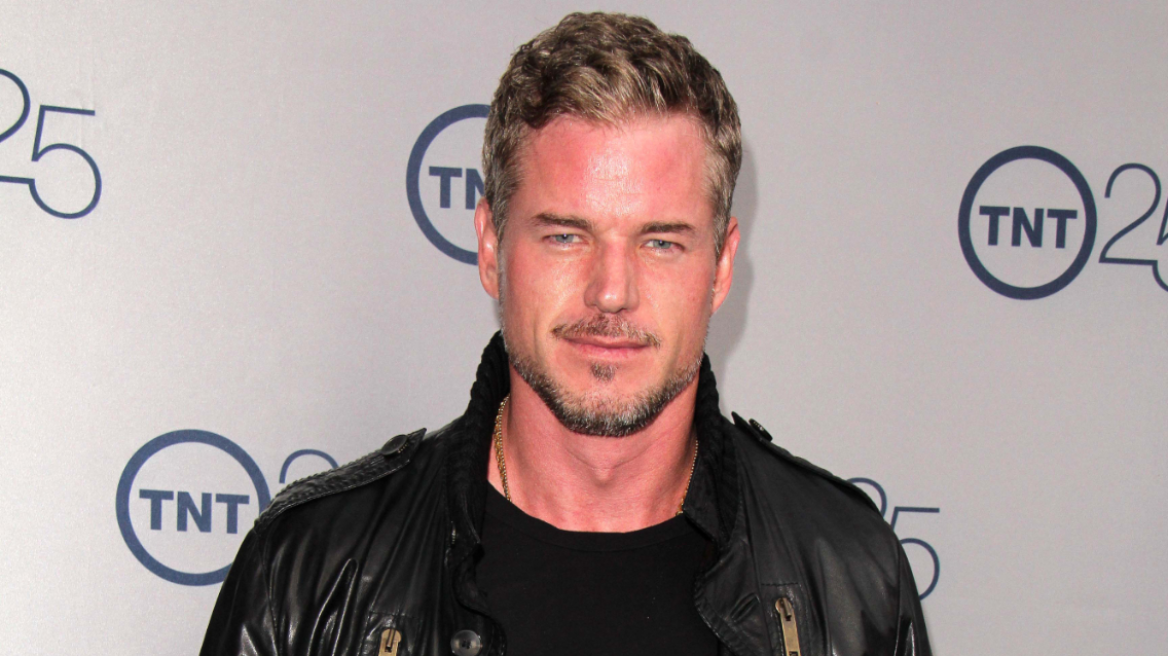Gallup recently published a poll showing that the share of people around the world willing to get vaccinated against Covid-19 in 2020. The data shows that willingness came to 68 percent – short of the 70-90 percent threshold experts believe is required to achieve herd immunity. There are significant differences between countries and Gallup found that majorities would actually refuse the vaccine in 20 countries, mainly across Eastern Europe and Africa. In total, the research found that more than a billion people were unwilling to get vaccinated in the first year of the pandemic.
Gabon had the highest levels of refusal in 2020 at 66 percent, followed by Cameroon and Jordan with 65 percent and 62 percent, respectively. Hungary, Bulgaria, Bosnia and Herzegovina, Russia, and Kazakhstan were also among the countries with the highest levels of unwillingness at 60 percent or higher. Myanmar was at the opposite end of the league with the highest levels of willingness to get vaccinated at 96 percent, followed by Nepal and Nicaragua, both of which had 87 percent. Russia boasted of being the first country to authorize a Covid-19 vaccine in 2020 but it now lagging behind other countries in its rollout, primarily due to high levels of vaccine hesitancy. As of early May 2021, just 8.5 percent of Russians had received one jab compared to 44 percent of Americans.
Gallup acknowledges its research gauged attitudes towards vaccination last year when countries were at different stages of both the pandemic and their vaccine rollouts. It is entirely possible and indeed likely that attitudes have changed in 2021 in line with successful vaccination campaigns. Nevertheless, Gallup states that its findings during 2020 still serve as an indicator of where resistance to Covid-19 vaccination remains strongest. That view is supported by the difficulties currently faced by authorities in Russia and other parts of Eastern Europe in convincing skeptical inhabitants to get the vaccine.
source statista
 You will find more infographics at Statista
You will find more infographics at Statista
Ask me anything
Explore related questions





